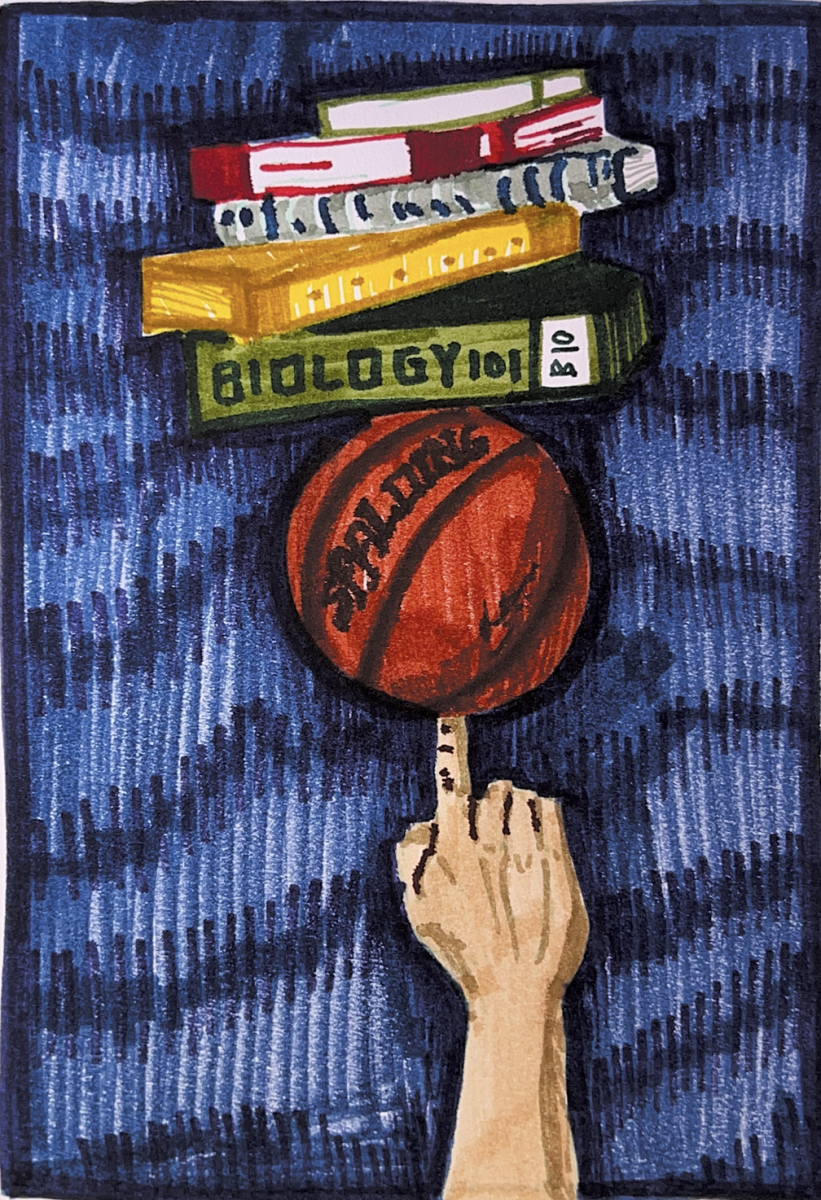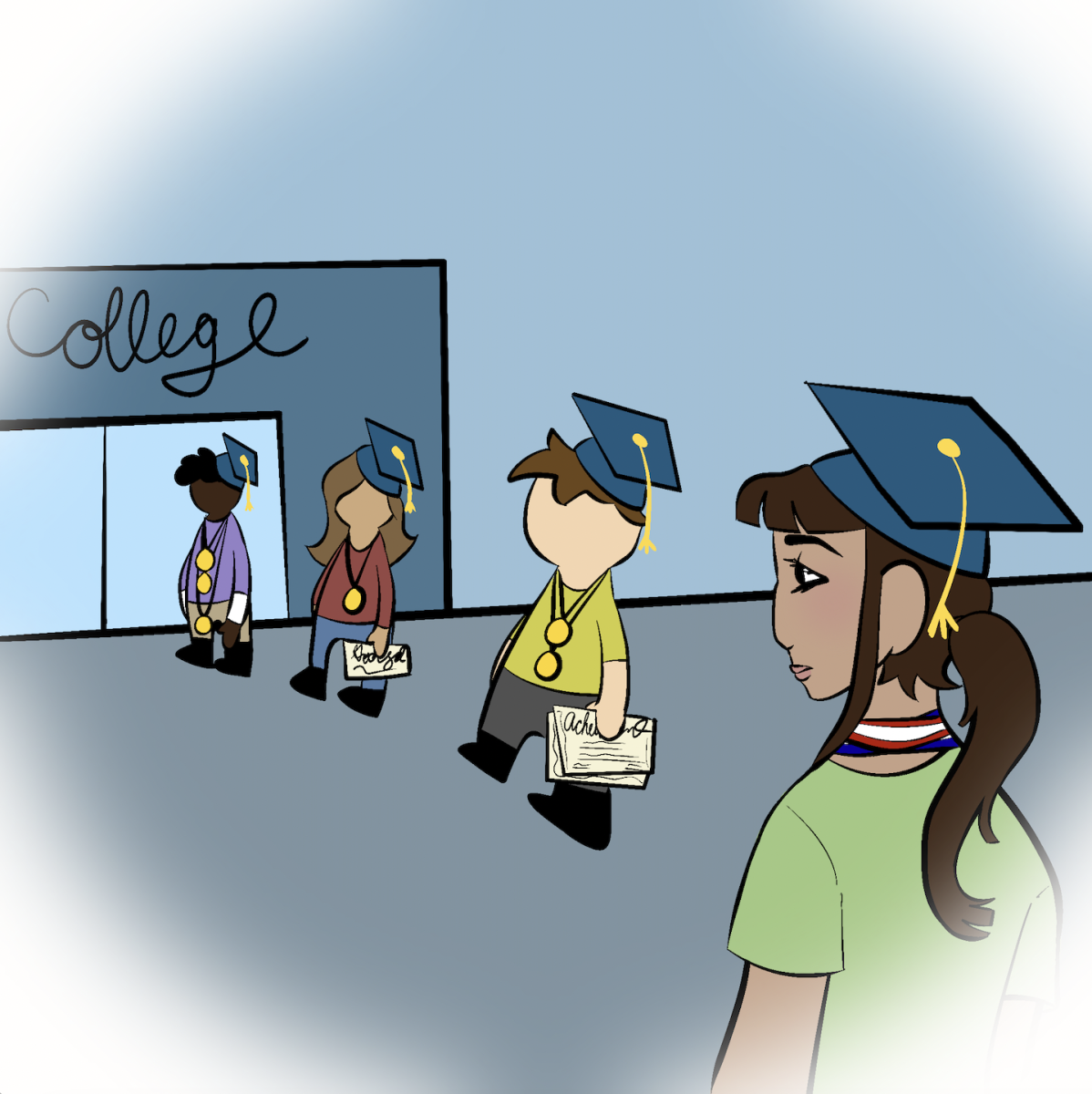We’ve all heard of that one kid who founded three nonprofits, leads five different clubs and volunteers 40 hours a week – all while playing four varsity sports. The media tends to highlight students who fit this archetype, so much so that it seems as if you won’t get into a good college if you aren’t piling activity after activity on your application. Too often, I open up YouTube Shorts to see the college content creator Limmytalks reading hundreds of student resumes, most of which seem so much better than my own. I get discouraged when I see these videos; I ask myself, how did those kids have the time to join all those clubs and receive so many different awards? But what amazes me most isn’t how much these students were doing while they juggled their rigorous course load, but rather how these kids with such an extensive list of extracurricular activities still managed to get rejected from many of the top schools they applied to.
It is often the case that Poly students join clubs for the sole purpose of mentioning it in their college applications. They join early on in their high school careers so that they can work their way up the ladder of leadership positions. Sometimes, a genuine passion for an activity makes joining a club simply a natural extension of a student’s interests, but other times, they just want the prestigious title of “club president” or “club co-leader.” Last month during the club fair, a sophomore came up to the leader of the business and finance club and asked, “If I sign up, can I be the leader after you graduate?” I stood right next to them during the interaction, and truthfully, I wasn’t even surprised by his bluntness. I have always been aware of the fact that students take part in activities to try and impress colleges. Even so, seeing this mindset play out in real time was eye-opening.
I still remember the piece of advice my peer mentor gave me my freshman year: to sign up for as many clubs as possible during the club fair, even if I didn’t have any interest in them at all. While it may have been good advice because of how non-committal signing up was, looking back, I think that it was encouraging this increasingly popular trend of taking part in as many different clubs as possible. It’s good to gain exposure to as many of the different aspects of school life as possible, but spreading your time between tens of different clubs limits the depth with which you can explore true passions and interests. I think my peer mentor gave this advice from a perspective of not wanting us to regret not joining a club, but at the time, I perceived this advice as telling me to buff up my college application with as many things as possible. It was unintentionally misleading and got me to think about how widespread the notion is that quantity outweighs quality. Falling victim to this idea sounded exhausting and unfulfilling. Instead of deepening my involvement in the activities I genuinely care about, I realized that this perception, which is so deeply ingrained in Poly and beyond, might explain why some students – those with a perfect SAT, a Blackstone internship, a starting spot on varsity and participation in an assortment of clubs across a variety of disciplines – still face rejection: they lack depth in experience in the things that truly matter to them.
Even the Common App encourages students to put down ten extracurricular activities they participated in in high school. I myself certainly can’t come up with 10 different things I devoted a significant portion of my time to, but I feel I may be at a slight disadvantage if I do not. Maybe that’s where this stress on joining clubs stems from. But even then, students still shouldn’t strive to fill up this list with activities they engaged with on a surface level. If Limmytalks taught me to remember one thing, it would be that developing an application around one or two certain themes conveys a much stronger method than doing a million disconnected things. A jack of all trades is a master of none.
The other issue with spreading yourself thin has nothing to do with college applications, but rather your life and well-being. Why spend your time in high school doing things you don’t want to do just to look good? Especially when signing up for fifteen, unconnected clubs likely won’t work in your favor. We high school students are living in arguably the best time of our lives. Why throw it away participating in activities you have no interest in to impress university admission officers who might see through your façade of enthusiasm? Choose a path of enjoyment and happiness while meeting new people who share the same interests and passions as you. Choose fulfillment over burnout while understanding that doing what you love will help you in the long run.

























